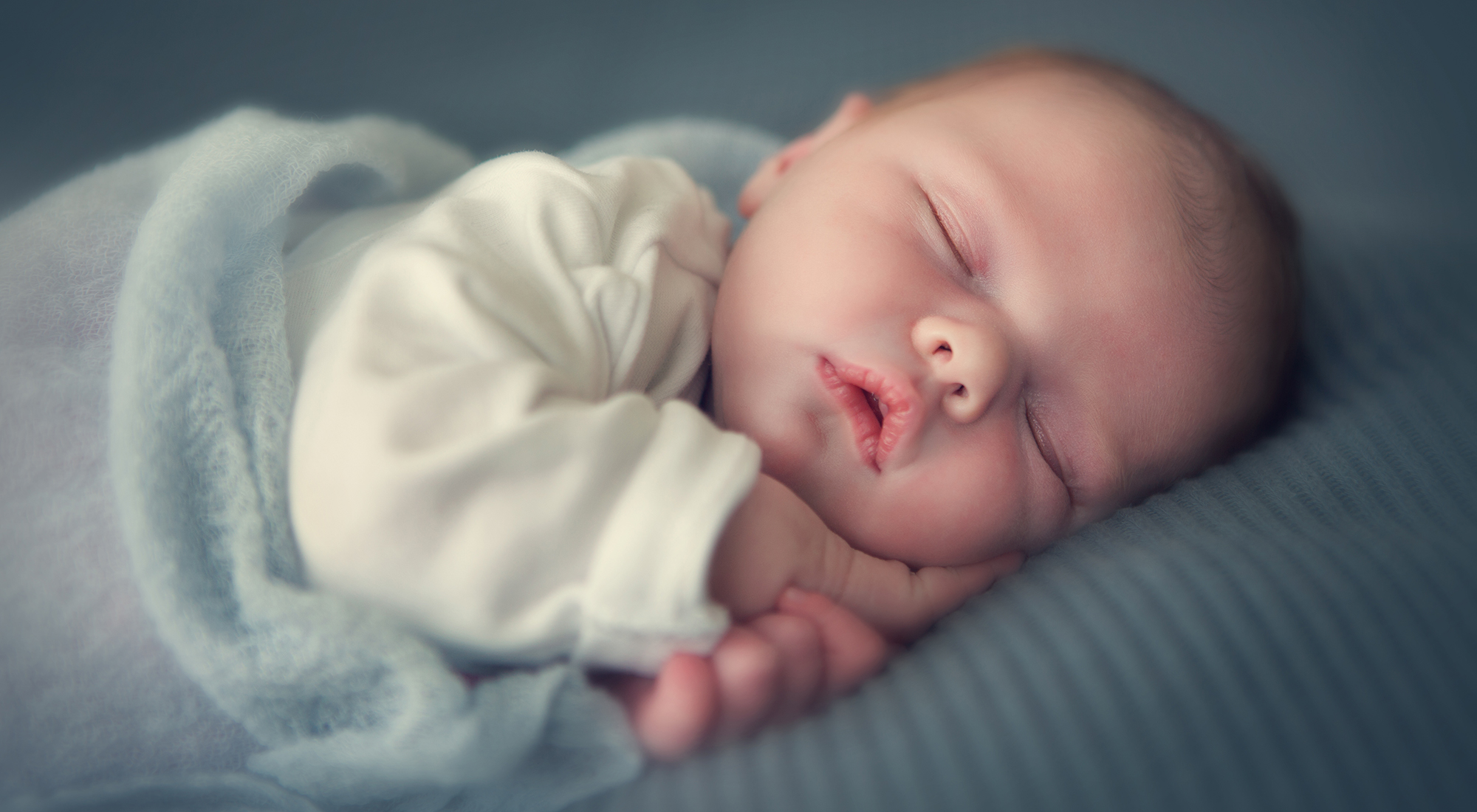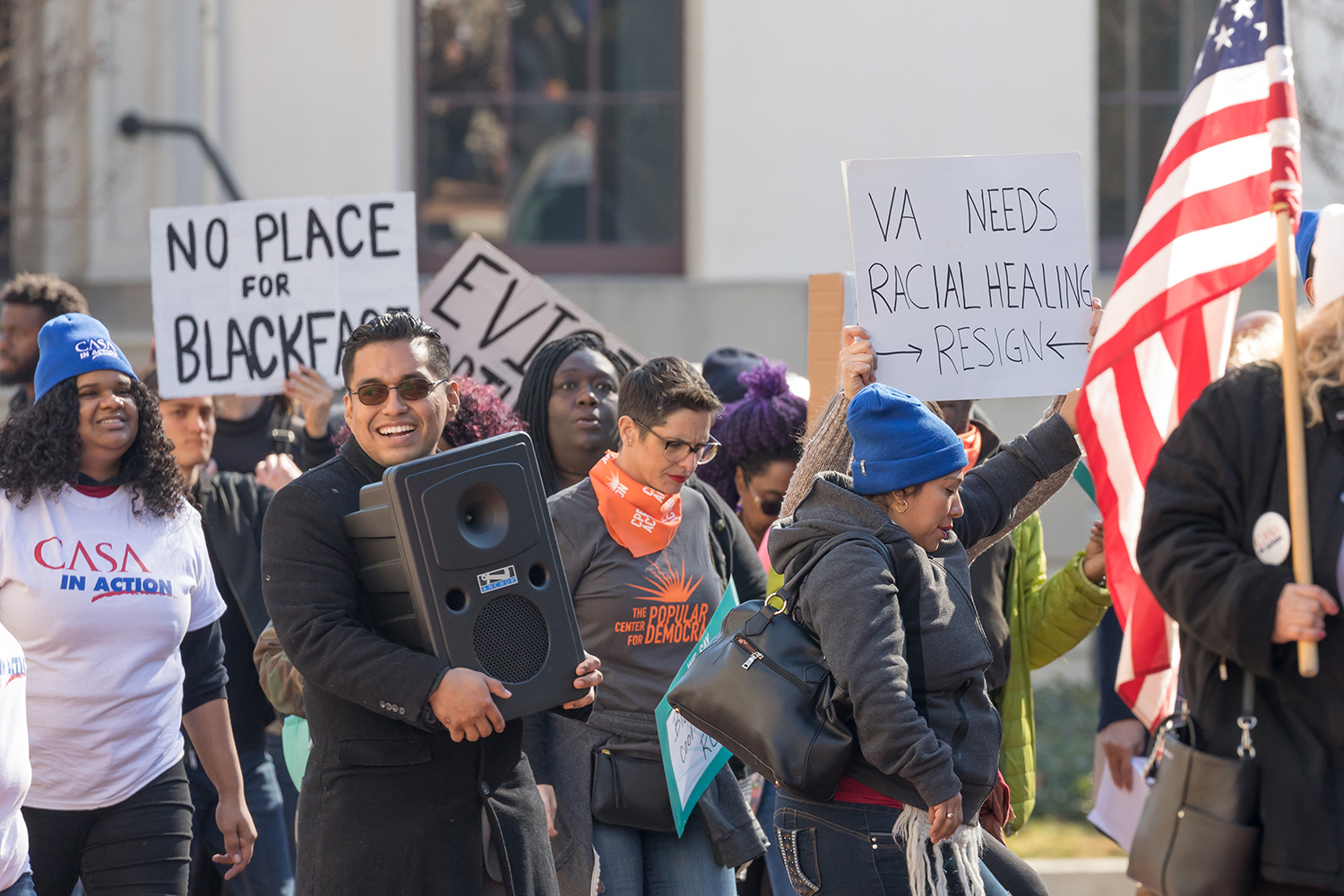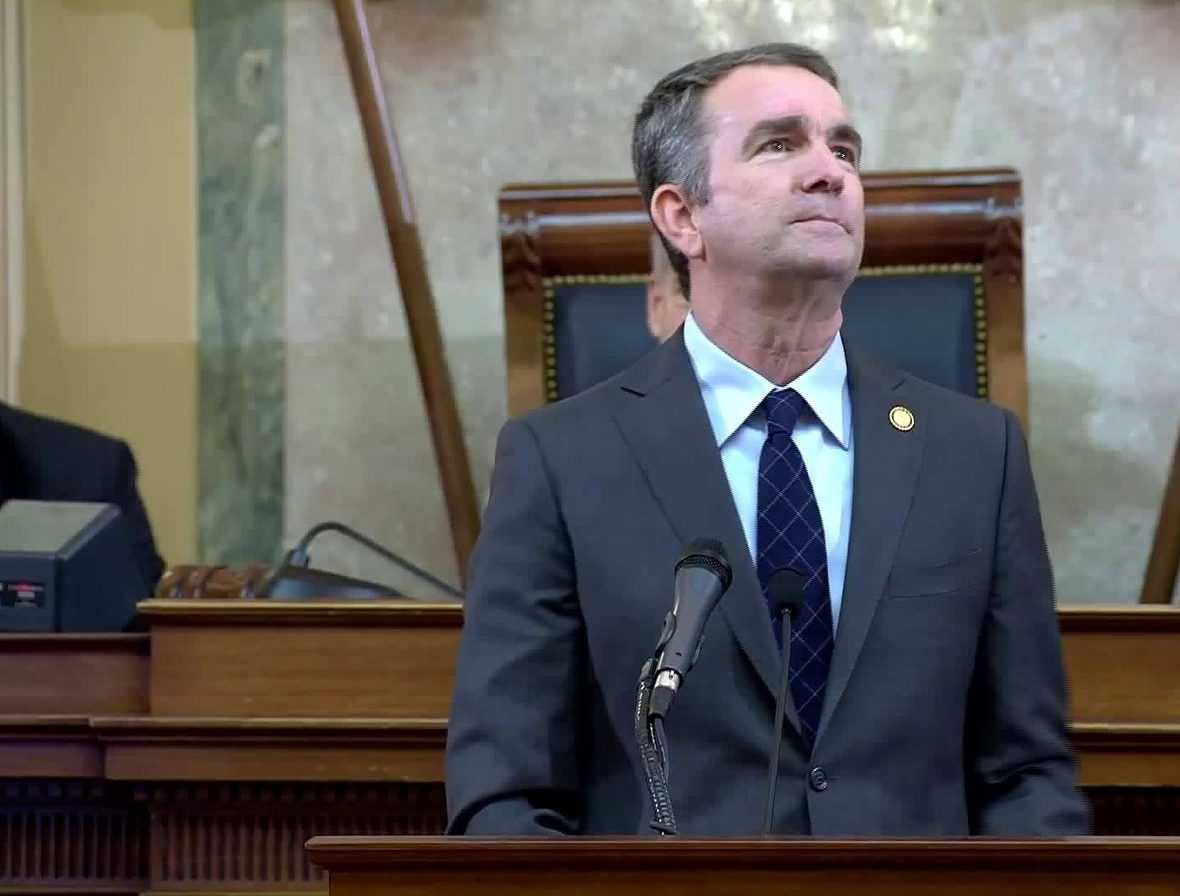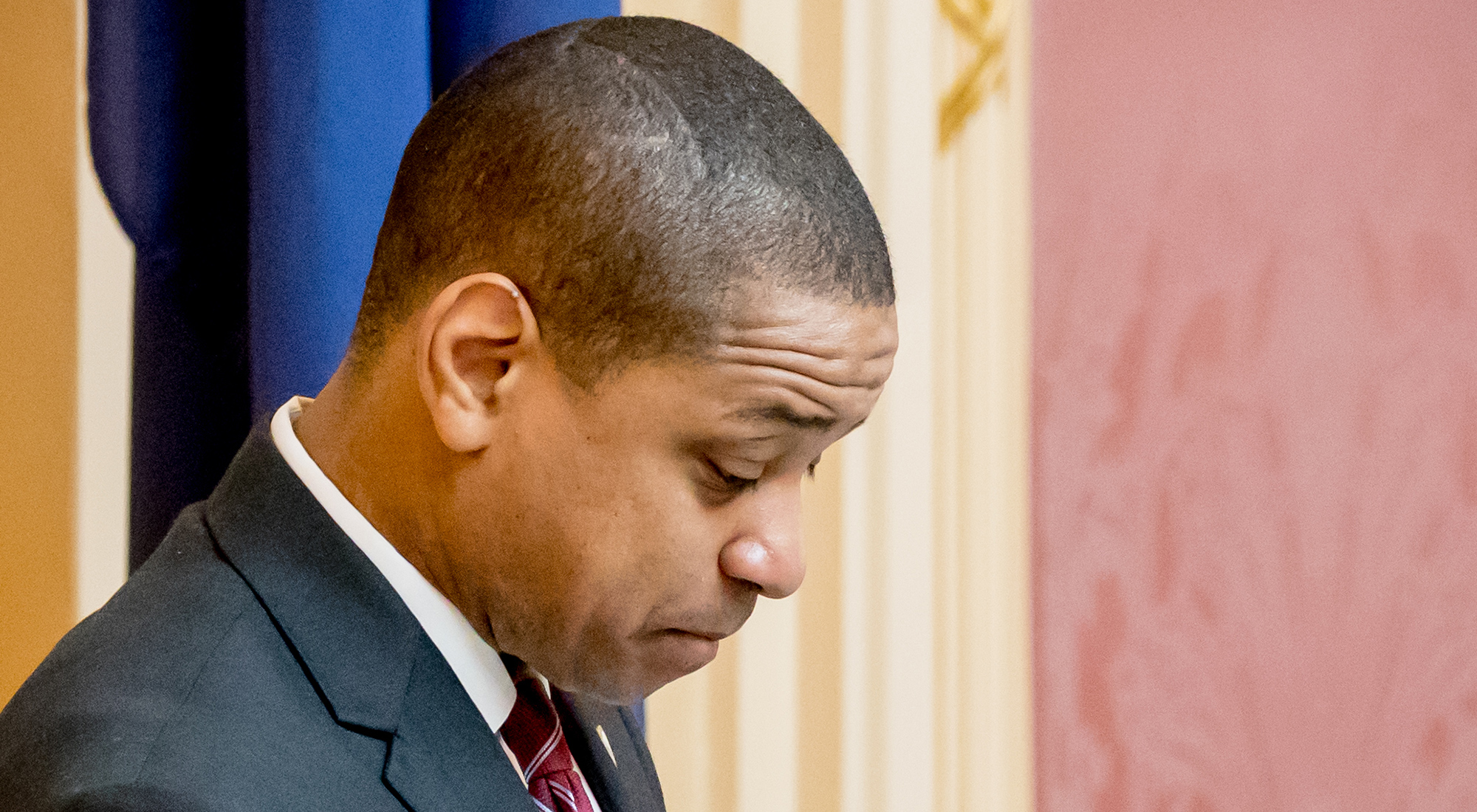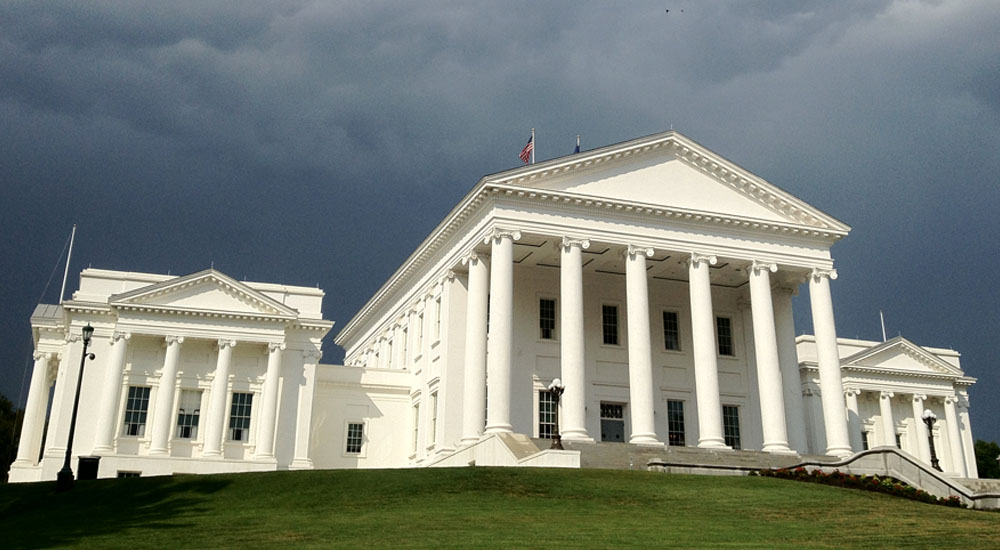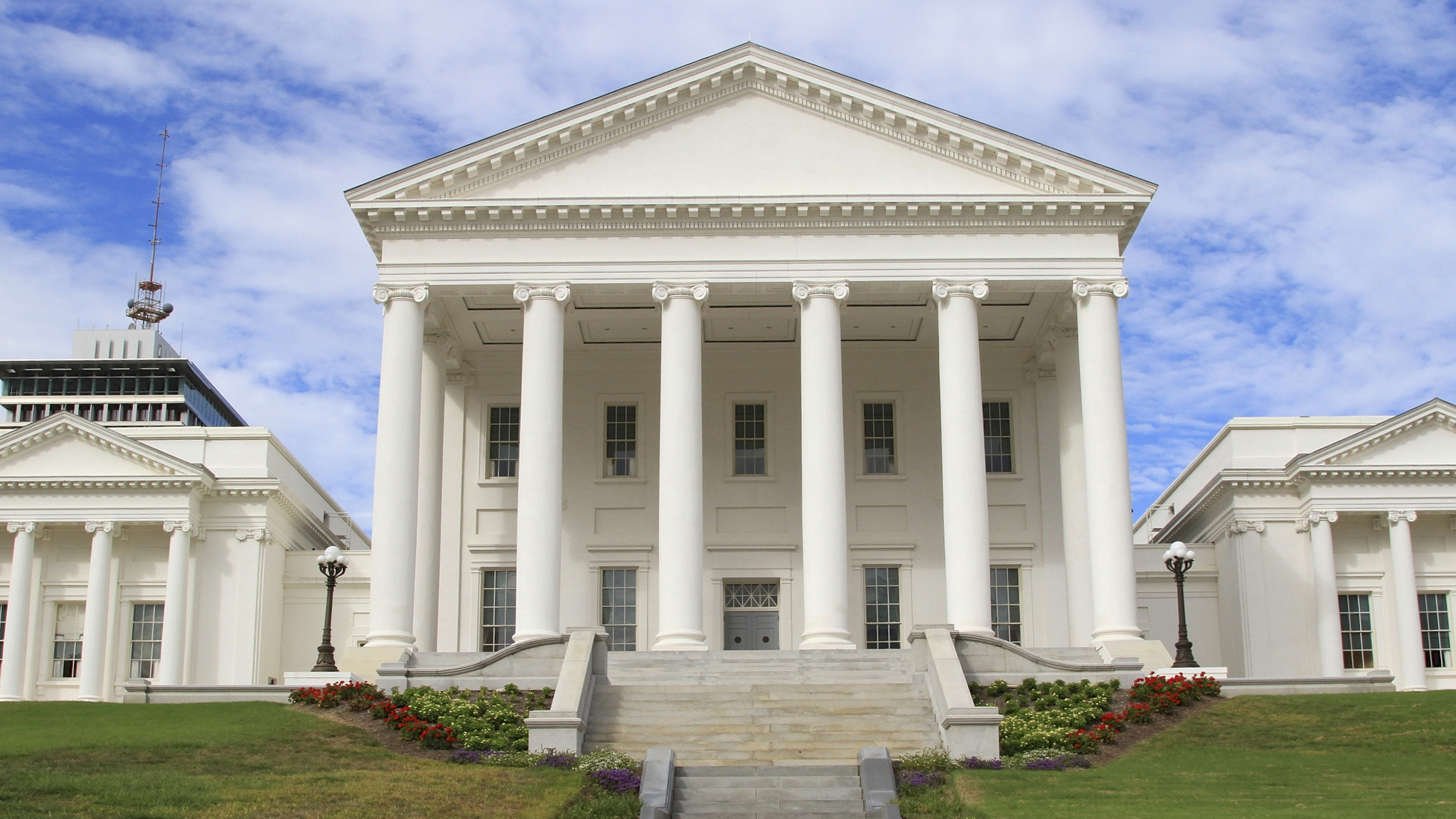Pam Northam, the wife of embattled Virginia Governor Ralph Northam (D) is now under fire after upsetting an eighth-grade African-American girl during a tour of the Executive Mansion as she was handed a piece of cotton by the First Lady, also asked to imagine being enslaved. The latest racial debacle comes almost one month after the governor reportedly appeared in a racist photo in his 1984 Eastern Virginia Medical School yearbook – either dressed in blackface or wearing Ku Klux Klan robes and hood – but denied doing so.
Questions were also raised about another yearbook photo, this time while Northam was a cadet at the Virginia Military Institute (VMI) in the early 1980s, where his nickname of “Coonman,” a racial epithet, is placed below his head shot.
In the days following, Governor Northam walked back his admission of appearing in the first photo, which included an attempt to moonwalk in front of reporters in a crowded room, and his wife telling him “inappropriate circumstances.”
However, it seems the Commonwealth’s First Lady did not heed her own advice amid the loathsome beginning of the racial “reconciliation tour.” Last week, the first stop at Virginia Union University (VUU) had to be cancelled due to widespread student backlash and subsequent calls for him to step down from office.
Nevertheless, another instance of racial insensitivity has led to the governor’s scandal being spread to his wife.
“The Governor and Mrs. Northam have asked the residents of the Commonwealth to forgive them for their racially insensitive past actions,” wrote Leah Dozier Walker, who oversees the Office of Equity and Community Engagement at the Virginia Department of Education. “But the actions of Mrs. Northam, just last week, do not lead me to believe that this Governor’s office has taken seriously the harm and hurt they have caused African-Americans in Virginia or that they are deserving of our forgiveness,” she added in her February 25 letter to Virginia lawmakers and the office of the governor.
On February 21, the Northams hosted a gathering at the Executive Mansion in downtown Richmond of approximately 100 youths who had served as State Senate pages during this year’s legislative session. Pam Northam took groups of pages on a tour through the building – built in 1813 by slave labor and is the oldest active governor’s residence in country – and in the kitchen, she held up samples of cotton and tobacco to a group of about 20 children and described the enslaved workers who picked it.
“Mrs. Northam then asked these three pages (the only African-American pages in the program) if they could imagine what it must have been like to pick cotton all day,” Walker wrote. “I can not for the life of me understand why the First Lady would single out the African-American pages for this — or — why she would ask them such an insensitive question.”
The governor’s office said the First Lady handed the cotton to whomever was nearby, both African-American and Caucasian pages, and wanted everyone to note the “sharpness” of the cotton boll and imagine how uncomfortable it would have been to handle all day.
In a letter written by Walker’s daughter addressed to Pam Northam, the young girl said she did not take the cotton, but her friend did.
“It made her very uncomfortable,” the girl wrote. “I will give you the benefit of the doubt, because you gave it to some other pages.”
“But you followed this up by asking: ‘Can you imagine being an enslaved person, and having to pick this all day?’ which didn’t help the damage you had done,” the girl added in her letter to Pam Northam.
While the First Lady offered the cotton to all of the pages in attendance over multiple tours, the situation shows a gross negligence of understanding the environment surrounding Virginia’s executive branch over the entirety of February, which is also, quite ironically, Black History Month.
“I regret that I have upset anyone,” Pam Northam said in a statement from the governor’s spokeswoman, Ofirah Yheskel.
Although Governor Northam has committed to dedicating the remainder of his term in office, which ends January 2022, to “racial equity” and “healing,” the calls for his resignation are far-reaching. After the latest development, it seems that not much thought is being taken into account for whatever “healing” the governor and his family are attempting to promote.



